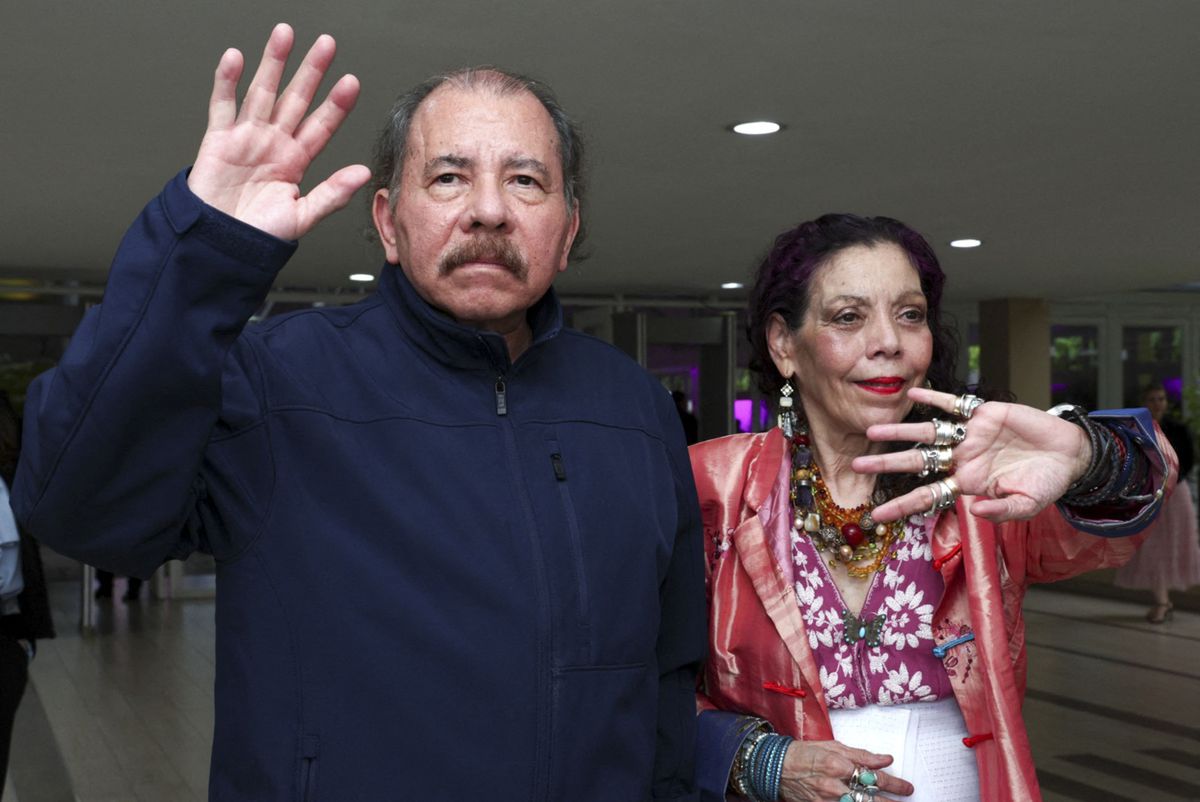The Organization of American States condemned the regime of Daniel Ortega and Rosario Murillo “without objection” on Friday in Washington, where the organization’s 53rd General Assembly was convening. Gone are Brazil’s threats to “soften” the resolution entitled Human rights crisis in Nicaragua Instead, member states unanimously condemned the “repression and continued repression of political opponents, the media and religious entities, including the Catholic Church” and “charitable organizations such as the Red Cross”.
The air of the hemisphere shall be free from the funnel plague. “Repressing the rights of individuals and our communities must act unflinchingly to protect freedom, leaving little room for those who want to limit it,” said Ronald Sanders, Permanent Representative of Antigua and Barbuda and one of the promoters of the initiative. The resolution calls for an end to all human rights violations and respect for civil and political rights, especially religious persecution. The OAS, as in previous resolutions, rejected “harassment of journalists, the media and NGOs, and respected their right to freedom of expression and peaceful assembly.”
This final version of the decision was reached after several negotiating meetings between the member states that proposed the document, after it became known that Brazil had tried to soften the language of the original proposal. Brazil’s representatives initially introduced changes to the draft resolution that spoke of “alleged” human rights violations and scrapped an article highlighting the departure of thousands of Nicaraguans from the country since 2018, the year of massive social protests that rocked the Ortega-Murillo administration.
After negotiations between member states and the rejection of the Nicaraguan opposition abroad, especially those that had been stripped of citizenship by the regime, the Brazilian delegation to the Organization of American States reversed its changes and the final draft was adopted. It was approved on Friday. Former Nicaraguan ambassador to the Organization of American States, Arturo Macfields, who resigned in 2022 in protest of the Ortega government’s actions, celebrated the final decision as a “victory”. “The truth triumphed because Brazil failed” to create a false narrative about the situation in the country. Although Ortega wants to forget about the OAS, the organization will not forget Ortega, and that is where the main victory lies,” McFields insisted.
In November 2021, Ortega-Murillos announced Nicaragua’s withdrawal from the Organization of American States claiming that “there are no people who accept constraints,” referring to provisions that the organization has formulated in a sustainable way since 2018. It lasts for two years and will take effect next November. The Sandinista regime then raided and seized the offices of the Organization of American States in Managua.
“high level dialogue”
Join EL PAÍS to follow all the news and read without limits.
Participate
Among the few things remaining from the Brazilian proposals is “a call on Member States to do everything in their power to encourage the Nicaraguan authorities to engage in dialogue at the highest level”. While the General Assembly was in Washington, President Luiz Inacio Lula da Silva announced that he would mediate with the family of Ortega Murillo for the release of one of the main symbols of repression, Bishop Rolando Alvarez, sentenced to 26 years in prison. After refusing to send them into exile along with 222 other dissidents who criticized the regime, they were stripped of their citizenship in February. The Brazilian president announced the initiative Thursday in Rome, after being received by Pope Francis the day before at a meeting in the Vatican.
Political analysts doubt Ortega will listen to Lula, as Managua has repeatedly rejected the various bridges of understanding proposed by the international community, via the Organization of American States, the Vatican, left-wing governments and the United States.
The representative of Antigua and Barbuda acknowledged that the OAS had reached out to the Government of Nicaragua on multiple occasions: it had offered assistance in restoring democracy and its basic principles. However, unfortunately, these efforts were met with disdain. Instead of progress, we have seen an erosion of democratic values, politics and human rights.
It is our duty to use our individual and collective influence to persuade the Nicaraguan authorities to engage in dialogue. In this resolution we call on all member states to do so with the hope that the government of Nicaragua will respond positively before putting an end to the interests of the Nicaraguan people and the general welfare of Nicaragua,” Sanders said.
The adopted resolution authorizes the OAS Permanent Council “to continue to deal with the political and human rights situation in Nicaragua, and to receive regularly updated information from the Inter-American Commission on Human Rights (IACHR) and other specialized organizations.” Member states affirmed that they “consider all further measures that may lead to the effective exercise of representative democracy, the rule of law and the protection of human rights in the country.”
Follow all international information on Facebook And Twitteror in Weekly newsletter.

“Music buff. Social media lover. Web specialist. Analyst. Organizer. Travel trailblazer.”

:quality(85)/cloudfront-us-east-1.images.arcpublishing.com/infobae/TEQF6EONZRFGLLLDIDD4L2O4EE.jpg)

:quality(75)/cloudfront-us-east-1.images.arcpublishing.com/elcomercio/XU32LRAEZFDDPNVHLFU3CKVBYY.jpg)



More Stories
Sheinbaum, Galvez, Mainz campaign wrap-up, news and more
Sheinbaum and Mainz’s CDMX campaign wraps up: Road Alternatives and Street Closures
Ortega attacks Humberto Ortega and declares him a “traitor to the country”